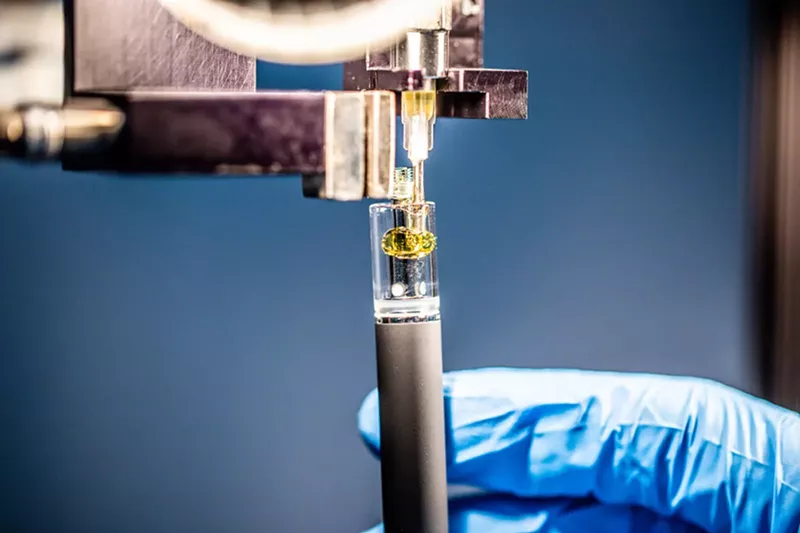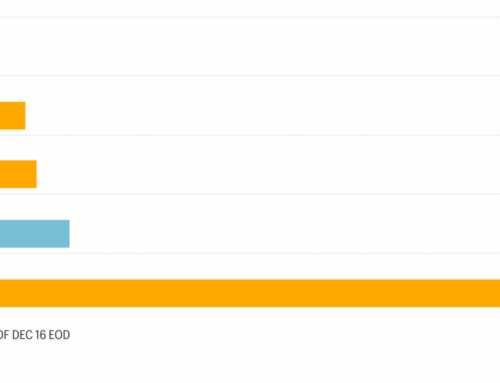Michigan may become one of the first states to allow recycling of cannabis vape cartridges
April 8, 2025
Michigan regulators are proposing a major policy shift that would allow cannabis businesses to collect and recycle used vape products, a much-needed step toward reducing the environmental hazards of disposable vaporizers.
Under a new rule proposed by the state’s Cannabis Regulatory Agency (CRA), licensed cannabis businesses could accept spent vape cartridges and recycle them, as long as they first dispose of any remaining “perceptible” marijuana concentrate.
“A licensee may receive used vape cartridges and recycle the cartridges if the licensee disposes of perceptible marihuana waste inside the cartridges before recycling the cartridges,” the proposed rule states.
If adopted, Michigan would become one of the first states to explicitly authorize cannabis businesses to recycle vape products, a move that could help address the growing number of toxic lithium batteries, plastic, and electronics ending up in landfills.
“The industry brought up protecting the planet and the viability of recycling these vape materials during the two years in which we used to construct our new rules,” CRA Executive Director Brian Hanna tells Metro Times. “We listened. And we put in a rule proposal to allow businesses to recycle vape products.”
But the CRA’s proposed rule change may need some modifications. Cannabis vape cartridges and all-in-one-vapes may look similar, but there’s a key difference. Cartridges are small glass containers prefilled with cannabis oil that screw onto a reusable battery. When the oil runs out, the cartridge is discarded, but the battery can be recharged and reused with a new cartridge.
All-in-one vapes, on the other hand, combine the oil and battery into a single, disposable unit. There’s no reusing the battery or refilling the tank. Once it’s empty, it’s trashed.

Citizens for a Safe & Clean Lake Superior
All-in-one vapes combine the oil and battery into a single, disposable unit.
The lithium batteries inside disposable vapes contribute to environmental harm throughout their life cycle, from water-intensive and destructive mining operations to fires and chemical leaching at waste facilities when improperly discarded. The plastic parts don’t break down, contributing to microplastic pollution that can persist for generations.
There have been mounting concerns about the growing popularity of single-use cannabis vapes, which are now among the most popular ways to consume cannabis in Michigan’s legal market. Sold for as little as $10, the sleek all-in-one devices come preloaded with potent concentrates like live rosin. They’re easy to use, require no maintenance, and are often tossed in the trash after just a few days, despite federal regulations that classify them as hazardous waste.
Despite their perks, disposable vapes pose significant environmental risks. Because the vapes contain marijuana residue, they can’t legally be shipped across state lines for recycling or dumped in standard landfills or recycling bins.
In February alone, Michigan’s recreational market sold more than $45 million in vape products, or roughly 10,900 pounds of cannabis oil. Many of these products were sold in disposable pens destined for the garbage.

Shutterstock
A disposable vape being filled with cannabis oil.
Until now, Michigan regulators have taken a largely hands-off approach to the waste crisis. The state has no take-back program, no requirement to label vape products as hazardous waste, and no mandate to inform consumers not to throw used devices in the trash. Most dispensaries won’t accept used vapes, and very few collections sites in the state will take them.
The proposed rule marks the first major effort to address those gaps, and it signals a willingness to listen to growing public concern.
Some people are calling for even bolder steps, including legislation that would require vape producers to fund and safely dispose of materials, a model known as Extended Producer Responsibility (EPR).
The CRA is encouraging consumers and people in the industry to weigh in on and offer other ways to reduce environmental harm.
The agency is accepting comments on its proposed rule changes through a public hearing scheduled for May 6.
Details on how to participate or submit written comments about the proposed rule changes are available on the CRA’s website.
Related
Search
RECENT PRESS RELEASES
Related Post




